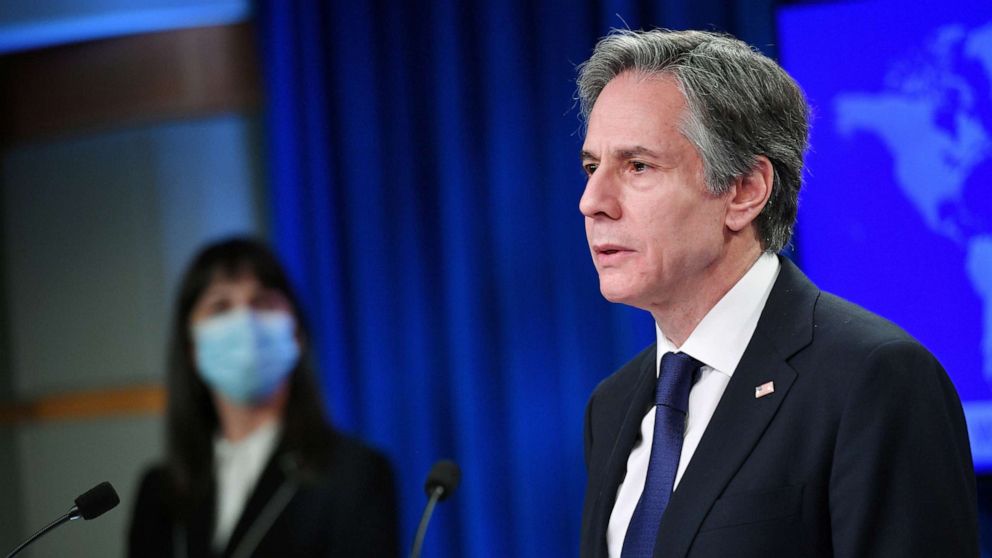On Tuesday, March 30, 2021, the 2020 edition of the Country Reports on Human Rights Practices was released by the U.S. Department of State’s Bureau of Democracy, Human Rights, and Labor. The Secretary of State is required by law to submit an annual report to the U.S. Congress on “the status of internationally recognized human rights” in all countries that are members of the United Nations. This annual report, called the Country Reports on Human Rights Practices but commonly known as the Human Rights Report (HRR), provides information that is used by Congress, the Executive Branch, and courts in making policies and/or decisions; thus accurate information on human rights conditions is critical. The HRR also informs the work at home and abroad of civil society, human rights defenders, lawmakers, scholars, immigration judges and asylum officers, multilateral institutions, and other governments.
The country reports are prepared by U.S. diplomatic missions around the world, which collect, analyze, and synthesize information from a variety of sources, including government agencies, non-governmental organizations, and the media. The reports do not attempt to catalogue every human rights-related incident, nor are they an effort by the U.S. government to judge others. Instead, they claim to be factual in nature and focus on a one-year period, but they may include illustrative cases from previous reporting years.
Conor Finnegan for ABC News on 30 March 2021 compared the report with those of the Trump administration:
Blinken launched the department’s 45th annual human rights report Tuesday which The report covers 2020 and found a further deterioration for human rights in many countries, particularly as governments used the coronavirus pandemic to curb their citizens’ rights.
The first report under the Biden administration also included changes that eliminated the conservative take of the Trump years, like ending former Secretary of State Mike Pompeo’s “hierarchy” of rights and re-introducing a section on women’s reproductive rights that will be published later this year.
When human rights defenders “come under attack, they often look to the United States to speak up on their behalf. Too often in recent years, these defenders heard only silence from us,” Blinken said. “We are back for those brave advocates as well. We will not be silent.“
In particular, Blinken “decisively” repudiated Pompeo’s “Unalienable Rights Commission,” a panel of academics that said in a report last July that freedom of religion and right to property were the most important human rights. While Pompeo touted the report and said it would lay a foundation for future administrations, critics accused it of minimizing minority rights. Blinken essentially jettisoned the report, saying Tuesday, “There is no hierarchy that makes some rights more important than others. Past unbalanced statements that suggest such a hierarchy, including those offered by a recently disbanded State Department advisory committee, do not represent a guiding document for this administration.” [see also: https://humanrightsdefenders.blog/2019/07/11/trump-marches-on-with-commission-on-unalienable-rights/]
Human rights are increasingly under threat around the world, Blinken said, saying the trend lines “are in the wrong direction.”
In particular, he highlighted what he called the Chinese government’s genocide of Uighurs and other Muslim ethnic minorities in Xinjiang province, attacks on civil society and political opposition in Russia, Uganda and Venezuela and on pro-democracy protesters in Belarus, war crimes in Yemen, atrocities “credibly reported” in Ethiopia’s Tigray region, and abuses by the Syria’s Bashar al-Assad’s regime.
While the report doesn’t touch on Myanmar’s coup and the military’s bloody crackdown on protests, because they happened in 2021, Blinken took time to again condemn the events. But after weeks of steadily increasing U.S. sanctions that have not deterred the ruling junta, he had no specific answer on what else the U.S. could do to change the darkening trajectory there.

Chinese officials and state-run outlets have increasingly raised U.S. race relations to say American officials are in no position to criticize Beijing — comparing Uighur slave labor in Xinjiang to Black slaves in the U.S. South.
“We know we have work to do at home. That includes addressing profound inequities, including systemic racism. We don’t pretend these problems don’t exist. … We deal with them in the daylight with full transparency, and in fact, that’s exactly what separates our democracy and autocracies,” he said, adding that open reckoning gives the U.S. “greater legitimacy” to address other countries’ records, too.
The Biden administration will use all tools available to impose consequences on human rights abusers and encourage better behavior, Blinken said, including the new Khashoggi policy that imposes visa restrictions on officials that target or harass their countries’ dissidents.
“Standing up for human rights everywhere is in America’s interests, and the Biden-Harris administration will stand against human rights abuses wherever they occur, regardless of whether the perpetrators are adversaries or partners,” he said.
This post was originally published on Hans Thoolen on Human Rights Defenders and their awards.